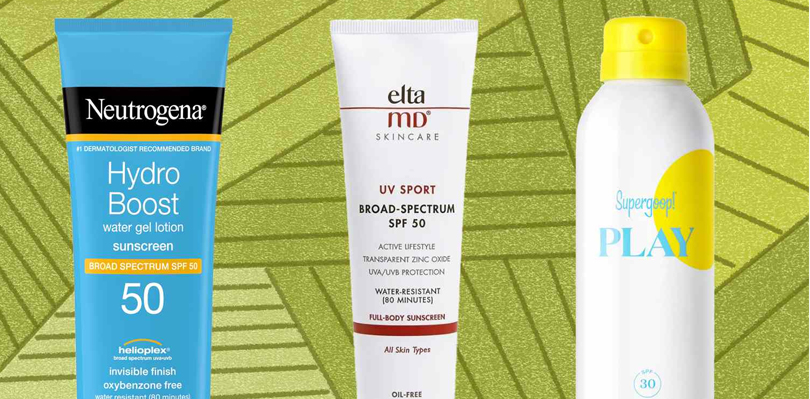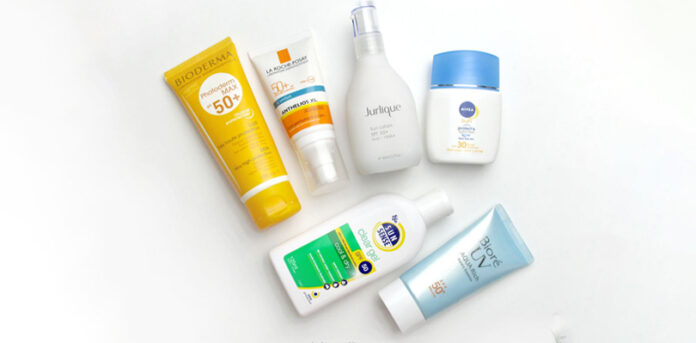The warm rays of the sun can be inviting, however, they also pose considerable risks to our skin and health. Wearing sunscreen is not just a case of avoiding sunburn; it’s vital for protecting your skin from harmful ultraviolet (UV) radiation.
Generally, not wearing sunscreen can have severe effects on your skin’s health and overall well-being. It’s essential to include sun protection into your daily routine, apply sunscreen generously, seek shade during peak sun hours, wear protective clothing, and use sunglasses to safeguard yourself from the harmful effects of UV radiation.
Why Is Sunscreen Important?

Sunscreen is of vital importance for several compelling reasons:
1. Protection Against Harmful UV Radiation
Sunscreen works as a shield, protecting our skin from the harmful ultraviolet (UV) radiation radiated by the sun. UV rays can cause direct damage like sunburns and tanning, but they also contribute to long-term effects such as premature aging, wrinkles, and dark spots.
2. Skin Cancer Prevention
Regular use of sunscreen has been proven to greatly reduce the risk of developing skin cancer. By forming a protective fence on the skin’s surface, sunscreen prevents UV rays from penetrating and damaging the skin cells, thus lowering the likelihood of cancerous cell mutations.
3. Preservation Of Skin Health
Sunscreen helps in maintaining the skin’s overall health and appearance. It prevents collagen breakdown, which is necessary for skin elasticity and firmness. Preserving collagen levels through sunscreen usage can minimize the development of fine lines and sagging skin over time.
4. Prevention Of Hyperpigmentation
Sunscreen helps in preventing hyperpigmentation, which refers to the darkening of certain areas of the skin due to increased melanin production. It helps even out skin tone and reduces the appearance of dark spots and discoloration caused by sun exposure.
5. Minimizing Sunburns
Sunscreen is an effective way to prevent painful and uncomfortable sunburns. Sunburns not only cause short-term discomfort but also indicate that the skin has sustained significant damage from UV radiation.
6. Preventing Premature Aging
Sunscreen plays a key role in maintaining youthful-looking skin. By protecting the skin from UV-induced damage, it helps prevent premature aging signs like wrinkles, fine lines, and age spots.
7. Enhancing The Effectiveness of Other Skincare Products
Using sunscreen alongside other skincare products, such as anti-aging creams and serums, can enhance their effectiveness. By protecting the skin from UV damage, sunscreen ensures that these products can work optimally without interference from harmful rays.
What Is SPF?
SPF stands for “Sun Protection Factor.” It is a numerical rating that indicates the level of protection a sunscreen provides against the sun’s harmful ultraviolet (UV) radiation. The primary purpose of SPF is to measure a sunscreen’s effectiveness in preventing sunburn caused by UVB rays, one of the two types of UV radiation that reach the Earth’s surface (the other being UVA rays).
The SPF value is typically found on sunscreen labels and is represented as SPF followed by a number (e.g., SPF 15, SPF 30, SPF 50). The number indicates how much longer it would take for a person’s skin to start reddening or burning when using sunscreen compared to not using any sunscreen at all.
For instance:
- SPF 15 offers 15 times longer protection against UVB rays compared to going without sunscreen, shielding your skin from the sun’s harmful effects.
- Stepping up to SPF 30 provides 30 times longer protection against UVB rays than foregoing sunscreen altogether, enhancing your defense against sunburn and potential skin damage.
- Opting for SPF 50 gives you an even higher level of protection, 50 times longer to be precise, significantly reducing the risk of sunburn and its adverse consequences on your skin.
It’s essential to note that no sunscreen can offer 100% protection from UV radiation, regardless of its SPF value. Higher SPF values do offer more protection, but the difference in protection between SPF 30 and SPF 50, for example, is not as significant as it might seem. SPF 30 blocks about 97% of UVB rays, while SPF 50 blocks around 98%. Beyond SPF 50, the increase in protection becomes even smaller.
What Happens If You Don’t Apply Sunscreen?
If you don’t apply sunscreen and expose your skin to the sun’s harmful UV radiation, several negative consequences can occur:
Sunburn: Without sunscreen, your skin is vulnerable to UVB rays, which can lead to sunburn. Sunburn is characterized by red, painful, and inflamed skin. Severe sunburns can cause blistering and peeling and can be extremely uncomfortable.
Increased Risk of Skin Cancer: Prolonged and repeated exposure to UV radiation without sunscreen significantly increases your risk of developing skin cancer. UV radiation damages the DNA in your skin cells, leading to mutations that can eventually lead to skin cancer, including melanoma, squamous cell carcinoma, and basal cell carcinoma.
Premature Aging: UV radiation can cause premature aging of the skin. This is characterized by the development of fine lines, wrinkles, and age spots at an earlier age than would typically occur. Exposure to the sun without sunscreen can accelerate the breakdown of collagen and elastin in the skin, leading to a loss of firmness and elasticity.
Hyperpigmentation: Without protection, the skin is more susceptible to
hyperpigmentation, which refers to the darkening of certain areas of the skin due to increased melanin production. This can lead to uneven skin tone and the development of dark spots and patches.
Eye Damage: The delicate skin around the eyes is particularly vulnerable to UV damage. Without sunscreen or sunglasses, prolonged sun exposure can increase the risk of eye conditions such as cataracts and macular degeneration.
Immune System Suppression: UV radiation can suppress the immune system in the skin, making it more difficult for the body to defend against infections and diseases.
Heat Exhaustion and Heat Stroke: Prolonged sun exposure without adequate protection can lead to heat-related illnesses like heat exhaustion and heat stroke, especially in hot and humid climates.
Tips To Consider Before Choosing A Sunscreen
Choosing the right sunscreen is essential to ensure effective sun protection for your skin. Here are some essential tips to consider before making your selection:
- Look for a sunscreen labeled as “broad-spectrum,” which means it protects against both UVA and UVB rays.
- Select a sunscreen with an SPF of 30 or higher. SPF 30 blocks about 97% of UVB rays, and higher SPF values provide only a slightly increased level of protection.
- If you’ll be swimming or sweating, opt for a water-resistant sunscreen.
- For sensitive skin, choose a sunscreen labeled as “fragrance-free” and “hypoallergenic”.
- For acne-prone skin, look for “non-comedogenic” sunscreens to avoid clogging pores.
- Select a sunscreen with a texture and formula that you enjoy applying.
- Check the ingredients list for active ingredients like zinc oxide, titanium dioxide, avobenzone, or mexoryl SX, which provide effective protection against UV rays.
- Always check the sunscreen’s expiration date before purchase.
- Consider using separate sunscreens for your face and body.
FAQs
How often should I apply sunscreen?
Sunscreen should be applied every two hours, or more frequently if swimming, sweating, or towel-drying, to maintain effective sun protection.
What type of sunscreen is the best?
The best type of sunscreen is a broad-spectrum sunscreen with an SPF of 30 or higher. Broad-spectrum sunscreens protect against both UVA and UVB rays, providing comprehensive sun protection. SPF 30 blocks about 97% of UVB rays and is generally considered sufficient for daily use.
What type of sunscreen is suitable for sensitive skin?
For sensitive skin, it is best to choose a sunscreen labeled as “fragrance-free” and “hypoallergenic.” Look for sunscreens with physical blockers like zinc oxide and titanium dioxide, as they are less likely to cause skin irritation

